This article relies largely or entirely on a single source .(May 2021) |
The 1928 Bavarian state election was held on 20 May 1928 to elect the 128 members of the Landtag of Bavaria. [1]
This article relies largely or entirely on a single source .(May 2021) |
The 1928 Bavarian state election was held on 20 May 1928 to elect the 128 members of the Landtag of Bavaria. [1]
| Party | Votes | % | +/– | Seats | +/– | |
|---|---|---|---|---|---|---|
| Bavarian People's Party | 1,045,963 | 31.57 | −1.27 | 46 | ±0 | |
| Social Democratic Party | 802,951 | 24.24 | +7.07 | 34 | +11 | |
| Bavarian Peasants' and Small Businesses' League | 382,104 | 11.53 | +4.40 | 17 | +7 | |
| German National People's Party | 306,649 | 9.26 | −0.16 | 13 | +2 | |
| National Socialist German Workers' Party | 203,115 | 6.13 | New | 9 | New | |
| Communist Party of Germany | 125,842 | 3.80 | −4.48 | 5 | −4 | |
| German People's Party/National-Liberal Party | 109,524 | 3.31 | +2.34 | 4 | +3 | |
| German Democratic People's Party/German Democratic Party of the Palatinate | 108,771 | 3.28 | +0.11 | 0 | −3 | |
| Economic Party | 105,808 | 3.19 | New | 0 | New | |
| Christian People's Service | 43,867 | 1.32 | New | 0 | New | |
| People's Justice Party (VRP–CSRP–BGK) | 43,778 | 1.32 | New | 0 | New | |
| Others | 34,572 | 1.04 | – | – | – | |
| Total | 3,312,944 | 100.00 | – | 128 | – | |
| Valid votes | 3,312,944 | 96.97 | −0.45 | |||
| Invalid/blank votes | 103,595 | 3.03 | +0.45 | |||
| Total votes | 3,416,539 | 100.00 | – | |||
| Registered voters/turnout | 4,607,846 | 74.15 | −2,39 | |||
| Source: Gonschior [1] | ||||||

The Reichsmarine was the name of the German Navy during the Weimar Republic and first two years of Nazi Germany. It was the naval branch of the Reichswehr, existing from 1919 to 1935. In 1935, it became known as the Kriegsmarine, a branch of the Wehrmacht; a change implemented by Adolf Hitler. Many of the administrative and organizational tenets of the Reichsmarine were then carried over into the organization of the Kriegsmarine.
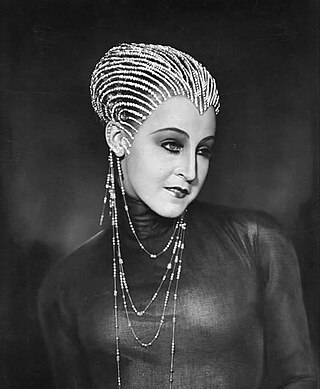
Brigitte Helm was a German actress, best remembered for her dual role as Maria and her double named Futura, in Fritz Lang's 1927 silent film, Metropolis.
The 1928 Summer Olympics saw the third field hockey tournament at Olympics. All games took place either in the new Olympisch Stadion or in the nearby Old Stadion. The field hockey tournament was held in the first part of this Olympic games. All matches were played between Thursday, May 17 and Saturday, May 26, 1928.

The Netherlands was the host nation for the 1928 Summer Olympics in Amsterdam. 266 competitors, 222 men and 44 women, took part in 103 events in 17 sports.

Friedrich Rudolf Klein, better known as Rudolf Klein-Rogge, was a German film actor, best known for playing sinister figures in films in the 1920s and 1930s as well as being a mainstay in director Fritz Lang's Weimar-era films. He is probably best known in popular culture, particularly to English-speaking audiences, for playing the archetypal mad scientist role of C. A. Rotwang in Lang's Metropolis and as the criminal genius Doctor Mabuse. Klein-Rogge also appeared in several important French films in the late 1920s and early 1930s.
The National Socialist German Students' Union was founded in 1926 as a division of the Nazi Party with the mission of integrating University-level education and academic life within the framework of the Nazi worldview. Organized strictly in accord with the Führerprinzip as well as the principle of Machtdistanz, the NSDStB housed its members in so-called Kameradschaftshäusern, and had its members decked out in classic brown shirts and its own distinctive Swastika emblems.
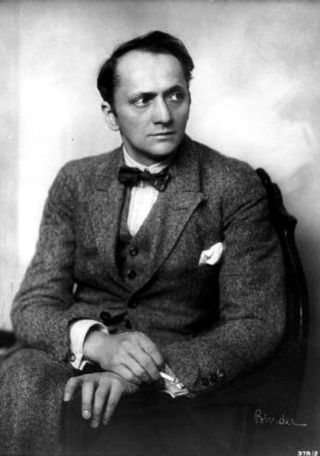
Theodor August Konrad Loos was a German actor.
Richard Eichberg was a German film director and producer. He directed 87 films between 1915 and 1949. He also produced 77 films between 1915 and 1950. He was born in Berlin, Germany and died in Munich, West Germany.
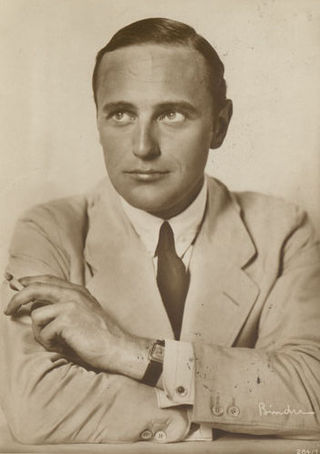
Harry Liedtke was a German film actor.
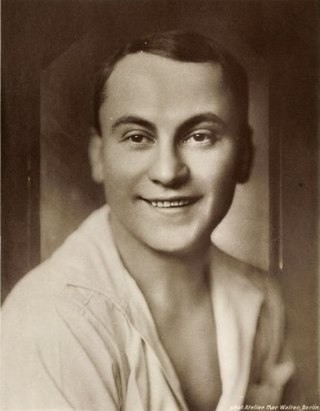
Kurt Vespermann was a German stage and film actor.
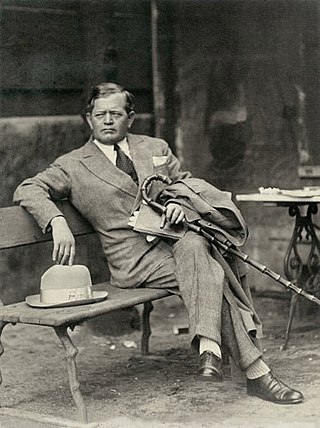
Albert Steinrück was a German stage and film actor of the silent era. He appeared in more than 80 films between 1910 and 1929. He starred in the 1923 film The Treasure, which was directed by Georg Wilhelm Pabst. He was also a leading role in the German expressionist 1920 film The Golem, in which he plays a rabbi.

Paul Hörbiger was an Austrian theatre and film actor.
Fritz Greiner (1879–1933) was an Austrian film actor.
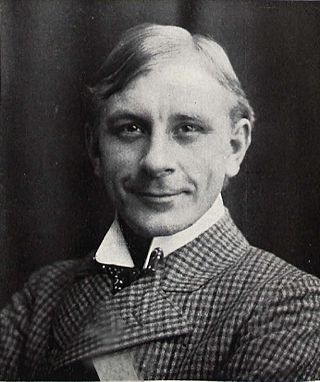
Karl Platen was a German actor and cinematographer of the silent era and later the sound era and known for Girl in the Moon (1929) and M (1931).

Empidinae, also called dance flies, are a subfamily of empidoid flies. They are mainly predatory flies like most of their relatives, and generally small to medium-sized. Most species are flower visitors and they can be effective pollinators.

Hans-Gerhart "Joscha" Schmierer is a German politician, author, and former radical activist. He has been a significant figure in left-wing politics and later transitioned into roles in international relations and policy advisory.

The Gau Berlin was an administrative division of Nazi Germany from 1933 to 1945 in the German capital Berlin. Before that, from 1928 to 1933, it was the regional subdivision of the Nazi Party in that area. From 1926 to 1928 Berlin was part of the Gau Berlin-Brandenburg which was split into two separate Gaue on 1 October 1928.

The Left Communists were a group of members of the Reichstag and the Prussian Landtag expelled from the Communist Party of Germany (KPD) in the period 1926–1928.
Events in the year 1928 in Belgium.